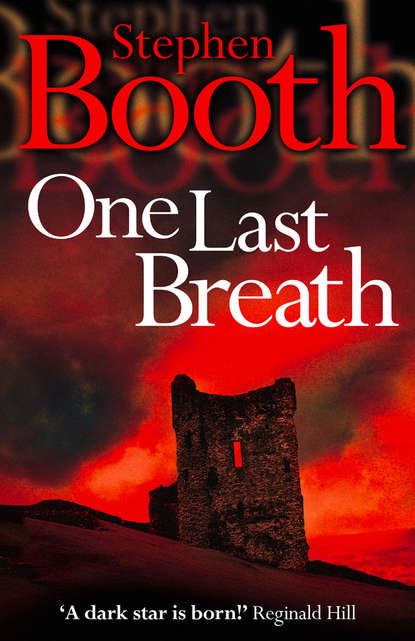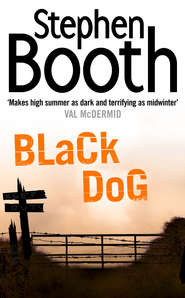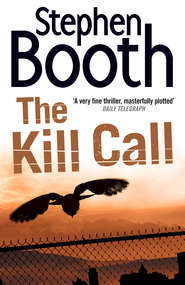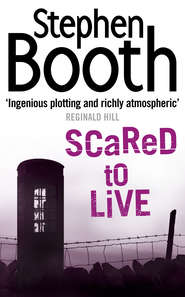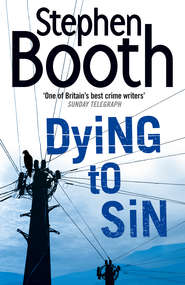По всем вопросам обращайтесь на: info@litportal.ru
(©) 2003-2024.
✖
One Last Breath
Автор
Год написания книги
2019
Настройки чтения
Размер шрифта
Высота строк
Поля
Quinn looked down at what he was wearing. One of the first things he should do was find one of those charity shops where they sold secondhand stuff for a couple of pounds – the places he’d seen on his escorted absences: Oxfam, Cancer Research, Help the Aged. In one of those shops, he could pick up some jeans and a couple of shirts, maybe an old jacket that smelled of fag smoke, and a pair of boots. Dead men’s clothes probably, but who cared? They’d make him less noticeable. He had his discharge grant in his pocket, but there were other things he might need money for. Dead men could provide his clothes for now. It would be appropriate, in a way.
‘I’ve even got a job lined up,’ said Rick. ‘What a stroke of luck, eh? My probation officer helped me. He’s a decent enough bloke. A bit of money in your pocket, that makes all the difference, doesn’t it? A home to go to and your family around you. I’m going to get my life sorted out, just you watch.’
‘Good for you.’
‘I mean, I’m only twenty-five – I’ve got my whole future ahead of me. Besides, you can’t waste your life away when you’re a dad. I want my two to be proud of me some day. I don’t want them to think they’ve got a dad who’s a waster because he’s spent most of his life in the nick, do I?’
‘No.’
‘Have you got kids yourself, then?’
Mansell Quinn grimaced, and his jaw tightened. He said nothing. But the young man hadn’t really been interested in an answer.
‘I want them to do better for themselves than I’ve done,’ said Rick. ‘I want them to work hard and get on in the world. So I’m going to set them an example from now on. I promised Sharon I would. My lad wants to be a doctor, and I’m going to help him do that.’
The A50 was dusty, and the passing traffic stank of petrol and hot metal. Quinn had inhaled more fumes in the past five minutes than in the last fourteen years. He wished there had been poppies in the field. They would have been a good omen – blood in the fields matching the blood in his mind. But their absence made him uneasy. For the first time it occurred to him that life in the outside world might have changed in too many ways while he’d been gone.
These days, he supposed farmers treated their seed with chemicals to kill the poppies, to make every crop they planted perfectly pure and golden, totally sterile and dull. There was no more scarlet among the yellow, no more blood in the cornfields. Now, the blood moved only in his memory.
Rick looked at Quinn, leaving his own fantasy world for a moment.
‘Have you been inside for a while, like?’
‘Thirteen years and four months.’
‘Thirteen years? That’s tough.’
Quinn could see him working it out. You learned to do that in prison – to calculate parole and automatic release dates, all the stuff that the system hid with acronyms, as if they were no more than letters on the page of a report, rather than the days of a man’s freedom. Rick could work it out for himself. Thirteen years and four months meant his sentence must have been at least twenty years, even without parole.
‘A lifer, then?’
They had emerged from the underpass, back into the light. Quinn turned slowly, trying to orientate himself. The busy stretch of trunk road above him was new, and he didn’t know which direction anything was from the underpass. It was almost as if the prison existed in a strange little universe of its own, created to keep it away from the rest of the world.
‘Yes, a lifer.’
He knew that Rick wanted to ask the next question, but something was stopping him – maybe he was distracted by the slight stirring of the air between them, a draught blowing up from the underpass, causing a swirl of dust at their feet. Rick opened his mouth to speak, but a look of doubt clouded his eyes and he didn’t ask.
‘Who did you kill?’ he wanted to say. But he didn’t.
And that was a good thing. Because Mansell Quinn might not have been able to tell him.
There must be a way for the buses to come down off the A50, because there was a stop right here near the underpass and another across the road. In fact, there was a bus coming now, on his side of the road, heading for Burton upon Trent.
‘Here we go, then. Here we go.’
Rick took a firmer grip on his carrier bag. He spat into the gutter and watched his saliva seep into the dust.
‘Good luck, mate,’ said Quinn.
His companion looked at him oddly, but his attention was diverted by the approach of the bus. As soon as it pulled up to the stop and the doors folded open, he jumped on board.
Suddenly, Quinn took a step back from the bus stop. He gave the driver a blank stare as the man met his eye expectantly. Rick turned to watch him, not understanding what was happening, perhaps even a bit hurt. Then the doors closed, and the driver accelerated away from the stop.
Quinn watched the bus until it was out of sight. Despite the noise of traffic, all the cars were passing above him, on the main road. He looked for a moment at the exit from the concrete underpass, at the barbed-wire fences and the pale, bland acres of corn. Then he crouched, picked up a lump of stone that had fallen from the banking, and hurled it at the bus shelter. A glass panel shattered and crazed, its broken fragments showering on to the tarmac like crushed ice.
For a moment, Quinn smiled at the noise that exploded into the silence. And then he began to walk. Behind him, four words still seemed to echo amid the sound of shattering glass: Who did youkill?
3
Rebecca Lowe’s new house in Aston had been built to be almost airtight. The insulation created a difference in the internal air pressure from the outside world, so that the back door opened with a soft little cough as it parted from its draught-proof lining. The air was sticky outside, and the thunder flies were swarming. The tiny black insects covered everything when she wasn’t looking, and even the thought of them made her skin prickle, so that she constantly wanted to wash her face.
Inside the house, she had air conditioning. It had been one of the things Rebecca had insisted on after the discomfort of the previous summer and its record high temperatures. She couldn’t bear the humidity, which made her head ache, her temples throb and her hands slippery with perspiration. She’d slept badly for weeks, and changed her bedclothes every morning. The rumble of the washing machine had become a permanent background accompaniment to the long summer days.
In the new house, she could be cool. Parson’s Croft had been built of breeze-block on the inside, but with local gritstone on the outside, so that it blended in with the older houses and the landscape, as well as meeting the national park planning regulations. The site had a belt of mature sycamores and chestnut trees to screen the house and provide shade when the sun was in the west. But the air conditioning only worked properly if she kept all the doors and windows closed. Sometimes, the atmosphere in the house tasted stale, as if she were breathing the same air over and over again. It created its own kind of oppressiveness, a feeling that was almost as bad as the humidity outside.
Her dog Milly felt it, too. She lay in her basket all day, dozing restlessly, until it was time for her evening walk. And even when she got outside, she was bad tempered. She would yap at strangers, or worry obsessively at a stick or a piece of stone lying on the grass verge.
Today, Rebecca felt she would even welcome rain to bring a bit of freshness. As she finished washing up and wiped her hands, she walked into the lounge to look out through the double-glazed picture window. She examined the view down into the Hope Valley and up the slopes of Bradwell Moor and Abney Moor, her gaze skirting quickly past the tall chimney of the cement works in Pindale. Grey clouds were gathering over the moors, with darker patches among them, like blue bruises in the sky. There might be a shower later, with a bit of luck.
The phone rang in the still air. Rebecca put her towel down on the window ledge before she answered it, immediately identifying a familiar voice.
‘Mum, you know what day it is today?’
‘Monday,’ said Rebecca. ‘There, you see – I’m not entirely ga-ga yet. Try me with another one.’
She heard her daughter sigh at the other end of the line. She could picture Andrea sitting in a coffee bar somewhere, or striding along a London street with her mobile phone clamped to her ear. Living independently in the city and being good at her job as a buyer for a big retail chain had turned her into a formidable young woman.
‘Today’s the day he’s coming out, Mum,’ she said.
‘Yes, they told me.’
‘Aren’t you worried?’
‘No.’
‘You’re not? But, Mum, what if he comes out there?’
Rebecca was still looking out of the lounge window. She could see nothing but the flowering cherry tree and buddleias at the bottom of her garden, and a pair of mature lime trees. Red-and-black butterflies fluttered around the buddleias, bright and gaudy in the sun. A flycatcher dipped from his perch on the telephone wire, caught a mouthful of food on the wing, and landed back on the wire in one graceful movement.
‘I don’t think he’ll come here,’ she said.
‘A change of name isn’t going to fool him, you know.’
‘Of course not, Andrea.’
‘So what will you do, Mum? What precautions are you taking?’
‘Well, I haven’t fed Milly for days,’ said Rebecca lightly.





